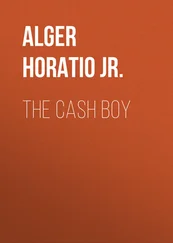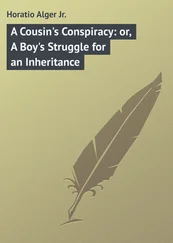Horatio Alger - The Backwoods Boy
Здесь есть возможность читать онлайн «Horatio Alger - The Backwoods Boy» — ознакомительный отрывок электронной книги совершенно бесплатно, а после прочтения отрывка купить полную версию. В некоторых случаях можно слушать аудио, скачать через торрент в формате fb2 и присутствует краткое содержание. ISBN: , Жанр: foreign_prose, foreign_language, на английском языке. Описание произведения, (предисловие) а так же отзывы посетителей доступны на портале библиотеки ЛибКат.
- Название:The Backwoods Boy
- Автор:
- Жанр:
- Год:неизвестен
- ISBN:http://www.gutenberg.org/ebooks/52073
- Рейтинг книги:3 / 5. Голосов: 1
-
Избранное:Добавить в избранное
- Отзывы:
-
Ваша оценка:
- 60
- 1
- 2
- 3
- 4
- 5
The Backwoods Boy: краткое содержание, описание и аннотация
Предлагаем к чтению аннотацию, описание, краткое содержание или предисловие (зависит от того, что написал сам автор книги «The Backwoods Boy»). Если вы не нашли необходимую информацию о книге — напишите в комментариях, мы постараемся отыскать её.
The Backwoods Boy — читать онлайн ознакомительный отрывок
Ниже представлен текст книги, разбитый по страницам. Система сохранения места последней прочитанной страницы, позволяет с удобством читать онлайн бесплатно книгу «The Backwoods Boy», без необходимости каждый раз заново искать на чём Вы остановились. Поставьте закладку, и сможете в любой момент перейти на страницу, на которой закончили чтение.
Интервал:
Закладка:
We are now to look upon the future President in a new capacity. As a clerk he proved honest and efficient, and my readers will be interested in some illustrations of the former trait which I find in Dr. Holland’s interesting volume.
One day a woman came into the store and purchased sundry articles. They footed up two dollars and six and a quarter cents, or the young clerk thought they did. We do not hear nowadays of six and a quarter cents, but this was a coin borrowed from the Spanish currency, and was well known in my own boyhood.
The bill was paid, and the woman was entirely satisfied. But the young store-keeper, not feeling quite sure as to the accuracy of his calculation, added up the items once more. To his dismay he found that the sum total should have been but two dollars.
“I’ve made her pay six and a quarter cents too much,” said Abe, disturbed.
It was a trifle, and many clerks would have dismissed it as such. But Abe was too conscientious for that.
“The money must be paid back,” he decided.
This would have been easy enough had the woman lived “just round the corner,” but, as the young man knew, she lived between two and three miles away. This, however, did not alter the matter. It was night, but he closed and locked the store, and walked to the residence of his customer. Arrived there, he explained the matter, paid over the six and a quarter cents, and returned satisfied. If I were a capitalist, I would be willing to lend money to such a young man without security.
Here is another illustration of young Lincoln’s strict honesty:
A woman entered the store and asked for half a pound of tea.
The young clerk weighed it out, and handed it to her in a parcel. This was the last sale of the day.
The next morning, when commencing his duties, Abe discovered a four-ounce weight on the scales. It flashed upon him at once that he had used this in the sale of the night previous, and so, of course, given his customer short weight. I am afraid that there are many country merchants who would not have been much worried by this discovery. Not so the young clerk in whom we are interested. He weighed out the balance of the half pound, shut up store, and carried it to the defrauded customer. I think my young readers will begin to see that the name so often given, in later times, to President Lincoln, of “Honest Old Abe,” was well deserved. A man who begins by strict honesty in his youth is not likely to change as he grows older, and mercantile honesty is some guarantee of political honesty.
There is another incident for which I am also indebted to Dr. Holland:
The young clerk was waiting upon two or three ladies, when a noted bully entered the store, and began to talk in a manner offensive not only to the ladies, but to any person of refinement.
Young Lincoln leaned over the counter, and said quietly, “Don’t you see that ladies are present?”
“What is that to me?” demanded the bully.
“Out of respect for them, will you stop your rough talk?”
“I will talk as I please, and I should like to see the man that will stop me,” answered the bully, arrogantly. “If you think you are the better man, we’ll try it on the spot.”
Lincoln began to see that the man meant to force a quarrel upon him, and he did not shrink from it.
“If you will wait till the ladies retire,” he said quietly, “I will give you any satisfaction you wish.”
The ladies had by this time completed their purchases, and were glad to leave the store.
No sooner had they left than the bully broke out into a storm of abuses and insults. The young clerk listened with the quiet patience habitual to him, and finally observed: “Well, if you must be whipped, I suppose I may as well whip you as any other man.”
“That’s what I’m after,” answered the bully.
“Come outdoors, then,” said Lincoln.
Abe, when they were fairly outside, thought there was no need of further delay. He grappled with the bully, threw him upon the ground with ease, and, holding him there, rubbed some “smart-weed” in his face and eyes till he bellowed for mercy.
“Do you give up?” asked Abe, in no way excited.
“Yes, yes!”
Upon this, Lincoln went for some water, washed his victim’s face, and did what he could to alleviate his sufferings. It is safe to say that the fellow never wanted another dose of the same medicine. It will further interest my young readers to learn that, so far from feeling a grudge against Lincoln, the bully became his fast friend, and behaved henceforth in a more creditable manner.
CHAPTER VIII
IN THE BLACK HAWK CAMPAIGN
Though the young clerk proved faithful and efficient, his whole time was not taken up by his duties in Offutt’s store. Knowing well the defects of his education, it occurred to him that he could use profitably some of his leisure by employing it in study. He knew little or nothing of English grammar, and this was likely to interfere with him if called upon to act in any public capacity where he would be required to make speeches.
“I have a notion to study English grammar,” he said to Mr. Graham, the schoolmaster.
“That is the best thing you can do, if you expect to enter political life,” said the teacher in reply.
“Where do you think I can find a grammar?” asked Lincoln.
It must be remembered that educational books, and indeed books of any kind, were scarce in those days.
“I think you will find one at Vaner’s.”
“I will go at once and see,” said Lincoln.
He set out at once, though Vaner’s was six miles distant, but such a walk did not trouble the young man at all. I am sure it will strike some of my young readers who dislike grammar, as odd that he should be willing to take so long a walk with such an object in view; but they too might do the same if they were as earnestly bent upon self-improvement as our hero. It is enough to say that he succeeded in obtaining the coveted book, and began at once to study it. Sometimes he was able to go out of doors and lie under a shade-tree; at other times he stretched his long, ungainly form on the counter and pored intently over the little book. I don’t know whether the obscure little text-book is still in existence; if it were, it would be a valuable memorial of this transition period in the young man’s mental growth.
The time came for a change in young Lincoln’s mode of life. Mr. Offutt’s business declined, and the store was closed. He was once more out of employment. Now it happened about this time that the peace of this region was disturbed by a series of Indian difficulties. Black Hawk, a chief of the Sacs, was the instigator and Indian leader. He was a man of commanding presence and superior abilities. In defiance of a warning given him by General Atkinson, commanding the United States troops at Rock Island, he left his reservation, and announced his intention of ascending the Rock River to the territory of the Winnebagoes. The force under General Atkinson being small, he issued a call for volunteers. One company was raised in New Salem and the vicinity, and Lincoln enlisted. Though without military experience, he was elected to the post of Captain by a large majority of the company, and accepted, This was a tribute to his popularity among his friends and neighbors.
Though the Black Hawk campaign was in no way remarkable, and involved very little fighting, it is noteworthy, as Dr. Holland remarks, that two men afterward Presidents of the United States were engaged in it. These were Zachary Taylor and Abraham Lincoln. I do not propose to enter into a detailed account of this campaign and of Lincoln’s part in it; I prefer to quote Mr. Lincoln’s own account of it, years afterward, when a member of the House of Representatives at Washington. It was during the political campaign when General Cass was the Democratic candidate, and was intended to ridicule the claims of his friends, that he had rendered distinguished military service to the republic.
Читать дальшеИнтервал:
Закладка:
Похожие книги на «The Backwoods Boy»
Представляем Вашему вниманию похожие книги на «The Backwoods Boy» списком для выбора. Мы отобрали схожую по названию и смыслу литературу в надежде предоставить читателям больше вариантов отыскать новые, интересные, ещё непрочитанные произведения.
Обсуждение, отзывы о книге «The Backwoods Boy» и просто собственные мнения читателей. Оставьте ваши комментарии, напишите, что Вы думаете о произведении, его смысле или главных героях. Укажите что конкретно понравилось, а что нет, и почему Вы так считаете.












